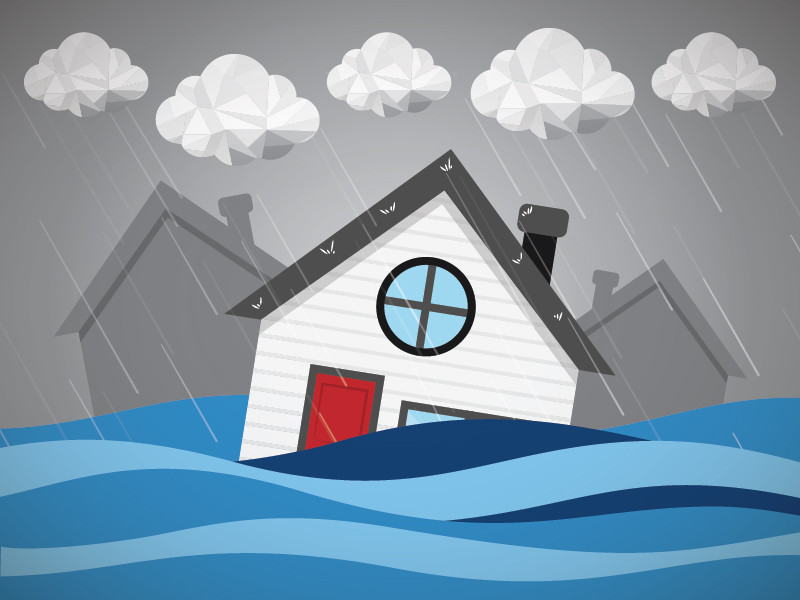Geneva: Water-related hazards dominate the list of disasters in terms of both the human and economic toll over the past 50 years, according to a comprehensive analysis by the World Meteorological Organization (WMO).
Of the top 10 disasters, the hazards that led to the largest human losses during the period have been droughts (650 000 deaths), storms (577 232 deaths), floods (58 700 deaths) and extreme temperature (55 736 deaths), according to the forthcoming WMO Atlas of Mortality and Economic Losses from Weather, Climate and Water Extremes (1970-2019).
With regard to economic losses, the top 10 events include storms (US$ 521 billion) and floods (US$ 115 billion), according to an excerpt from the Atlas, which will be published in September.
Floods and storms inflicted the largest economic losses in the past 50 years in Europe, at a cost of US$ 377.5 billion. The 2002 flood in Germany caused US$ 16.48 billion in losses and was the costliest event in Europe between 1970 and 2019. However, heatwaves had the highest human toll.
The data show that over the 50-year period, weather, climate and water hazards accounted for 50% of all disasters (including technological hazards), 45% of all reported deaths and 74% of all reported economic losses at global level.
"Weather, climate and water-related hazards are increasing in frequency and intensity as a result of climate change. The human and economic was highlighted with tragic effect by the torrential rainfall and devastating flooding and loss of life in central Europe and China in the past week," said WMO Secretary-General Prof. Petteri Taalas in a press release on Friday.
"Recent record-breaking heatwaves in North America are clearly linked to global warming," said Prof. Taalas.
However, he added, heavy rainfall episodes also bear the footprint of climate change.
"As the atmosphere gets warmer it holds more moisture which means it will rain more during storms, increasing the risk of floods," said Prof. Taalas.
"No country – developed or developing – is immune. Climate change is here and now. It is imperative to invest more in climate change adaptation, and one way of doing this is to strengthen multi-hazard early warning systems," he stated.
Water is the primary vehicle through which we feel the impacts of climate change. To effectively address both water and climate challenges, we must bring climate change and water to the same table – into the same conversation: Tackling them as one.
This is why WMO is spearheading a new Water and Climate Coalition, a community of multi-sectoral actors, guided by high-level leadership and focused on integrated water and climate action, said Prof. Taalas.
Cek Berita dan Artikel yang lain di Google News
FOLLOW US
Ikuti media sosial medcom.id dan dapatkan berbagai keuntungan



















